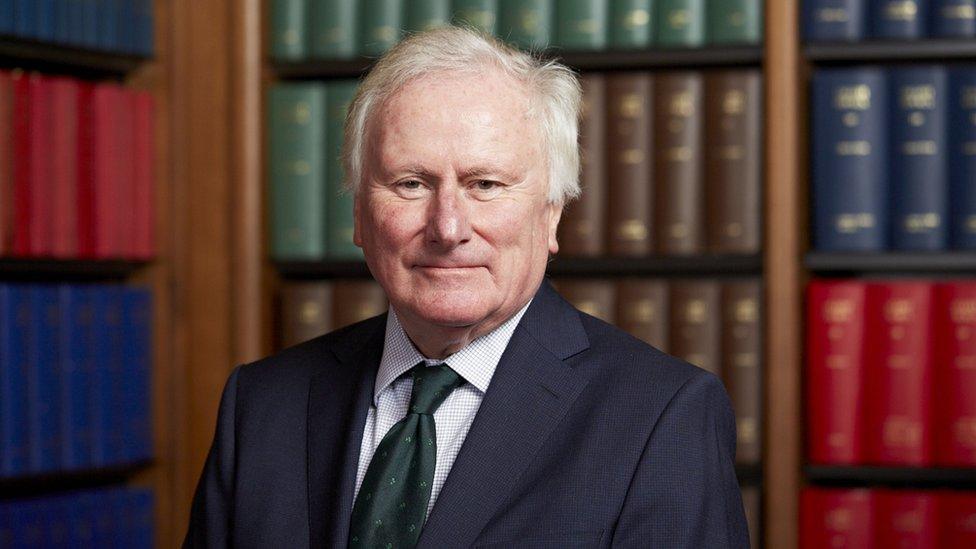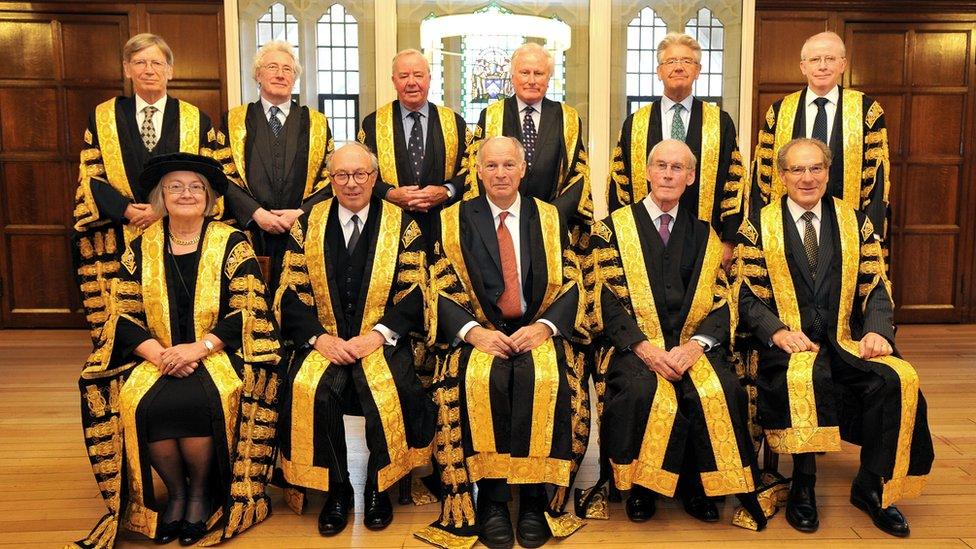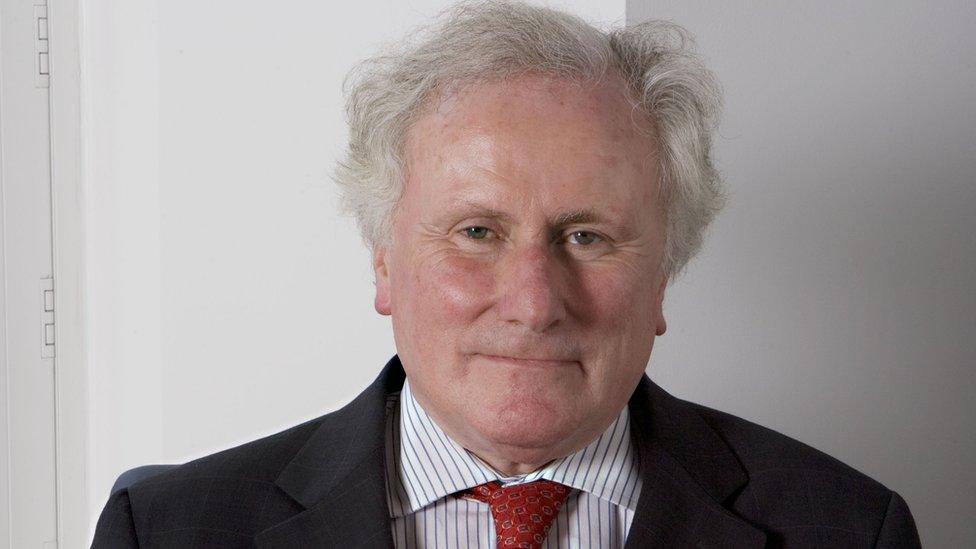Lord Kerr of Tonaghmore: Former Supreme Court judge dies at 72
- Published

Lord Kerr from Lurgan became one of the most high-ranking judges in the UK
The UK Supreme Court has paid tribute to one of its first judges, Lord Kerr of Tonaghmore, who has died aged 72.
His death was announced just two months after he retired, having served in the UK's highest court since it was established in 2009.
Lord Kerr was also lord chief justice of Northern Ireland from 2004 to 2009.
The President of the Supreme Court, Lord Reed, described him as a kind and modest man with an "instinctive sense of justice" who would be much missed.
"Justices and staff alike are shocked by the news, and we offer our deepest sympathy to Lady Kerr, her children and their families," he said.
Northern Ireland's leaders have also been paying tribute to Lord Kerr.
First Minister Arlene Foster said he was a "fine lawyer" who had a "long and distinguised judicial career".
Deputy First Minister Michelle O'Neill said he had "made a significant contribution to the judicial system" and "served our courts for many years".
'Courage and a strong sense of duty'
Born Brian Francis Kerr in 1948, his family lived in Lurgan, County Armagh, and he was educated at St Colman's College in Newry, County Down.
He studied law at Queen's University Belfast and was called to the bar in 1970.
The father of two became a QC in 1983 and within 10 years, he was a judge.
"He became a High Court judge at the age of 44, at a time when the decision to serve as a judge in Northern Ireland required courage and a strong sense of duty," said Lord Reed.
He later rose to become lord chief justice - the most senior judge in Northern Ireland - and served five years in that post.
When the Supreme Court was created in 2009, the then Sir Brian Kerr was one of the first judges to be appointed to the newly-formed institution.

Lord Kerr with the Lords of the UK Supreme Court in 2012
Having served exactly 11 years on the UK's most powerful court, he retired from the Supreme Court on 30 September.
His death was announced by a fellow judge at Craigavon Crown Court in County Armagh on Tuesday morning.
Just before he started a trial, Judge Patrick Lynch QC told the jury he had just received the news that the "local boy" had died suddenly.
He added that Lord Kerr had "a distinguished career as a junior barrister" before being called to the bar.
Judge Lynch also told the jury that on his appointment to the Supreme Court, he took the title of Lord Kerr of Tonaghmore in tribute to his Lurgan roots.
Despite climbing to the top of his profession, Lord Kerr once said that he "fell into law by default" and had little ambition to become a judge.
'Adrenaline rush'
In an interview with the Justice organisation in 2014, external, he said preferred fighting cases as a barrister to making rulings as a judge.
"The experience of feeling that you had done the case as well as you possibly could have done, whatever the outcome, the adrenaline rush you got from that is not easily replicated in one's life as a judge," he said.
Referring to the Troubles, he added: "There were many disadvantages, especially in Northern Ireland, in becoming a judge at that time."
However, he said he accepted a nomination to become a High Court judge in 1993 out a sense of duty, adding: "I felt that it that was the right thing to do."
'Slightly ridiculous aspiration'
Lord Kerr's mother was a teacher and his father was a qualified solicitor who did not practise law.
As a Newry schoolboy, he had ambitions to attend Oxford University, but he was never entered for the exam because "my school felt that that was a slightly ridiculous aspiration".
He said that when he later attended conferences, he was often introduced as the only Supreme Court judge who, at that stage, had not gone to Oxbridge.
"I usually issue a gentle correction: "I'm the only justice who has the great good fortune to be educated at Queens University Belfast," he joked.

The Supreme Court president paid tribute to Lord Kerr's "considerate, good-humoured" nature
In an address to the Supreme Court on Tuesday afternoon, its president Lord Reed said: "Brian was a deeply valued colleague, a kind and modest man of the utmost integrity, who will be deeply missed by all those who had the pleasure of working with him."
He added that his late colleague had the most distinguished of legal careers and "left us a legacy which will be drawn on well into the future.
"Through his judgments and during hearings, Brian demonstrated his strong and instinctive sense of justice, and his thoughtful and principled approach to resolving legal problems.
"He will never know the full extent of the impact which his considerate, good-humoured and encouraging nature had on the court, the staff of the court, and his judicial colleagues."
The Supreme Court flag will fly at half-mast on Tuesday and Wednesday in tribute to Lord Kerr.